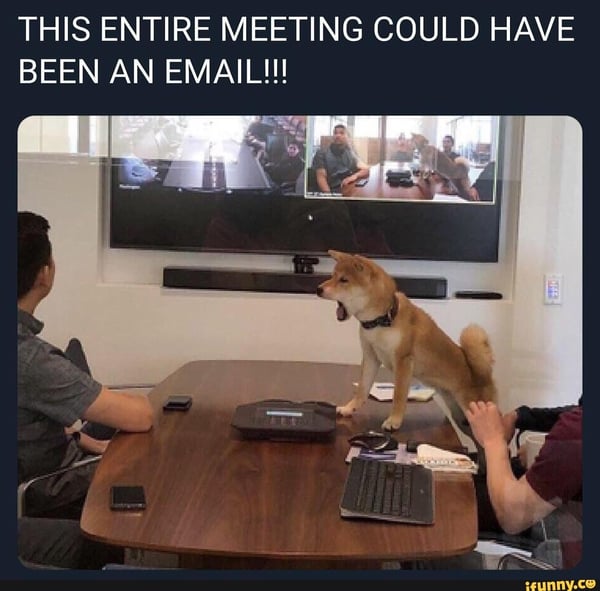4 min read
Maximize Productivity at Your Firm With This Refresher

Can you believe the holiday season is already upon us?! In some ways, it feels like 2020 started three years ago, and in other ways, it feels like we blinked and we’re suddenly preparing to celebrate a new year. Regardless of how you feel about this year, it can be easy to overlook the time-tested tips we rely on for making sure we’re getting everything done... and doing it well.
Of course, maximizing your firm’s productivity is easier said than done. Keeping your nose to the grindstone and doing all the work you're supposed to is only part of the equation—and it still might not be enough. If you want to maximize your productivity, you need to take extra steps to improve your work processes.
That’s why we thought it might be helpful to highlight some of the most effective ways you can hit the accelerator and make the most of the time we have left before the holiday season ends and the busy season takes over.
Getting more done with less effort may sound like a paradox, but it’s possible if you commit to improving your processes and take an honest look at your firm’s operations.
Let’s jump in!
Improving Productivity at Your Accounting Firm
Make Your Meetings More Meaningful
Nobody likes a long meeting — especially when the intentions are unclear and the structure is lacking. Excessive and unnecessary meetings can sap morale, and they take time away from delivering expert service to your clients, too.

Meetings can play a critical role in an accounting firm, and here are some general best practices for making them effective and efficient:
- For status update meetings, shoot for fifteen minutes long at a maximum.
- Establish goals & roles at the beginning of the meeting so that everyone knows what’s happening and who’s doing what (note taking, running the presentation, etc.)
- Don't allow phone calls, texts, or emails during meetings (eyes up!).
- Try to keep attendee count low (10-15 people or less).
- Circulate an agenda with the meeting request.
That last tip can’t be stressed enough — meeting invitations with no agenda are often pointless to those who aren’t in the loop with why they’re being invited. Include an agenda (even a simple one) to avoid employees from skipping out. #NoAgendaNoAttenda
Choose Actionable Priorities
At the end of your meeting, your to-do list should consist of tasks that are totally doable — and assigned to appropriate employees. Actionable and granular priorities are especially beneficial because they don't leave much room for misunderstanding. The clearer and more attainable your goals, the more likely your firm is to actually reach them.
Try creating action items for every item on your agenda, and assign them before the meeting is finished. Knowing who’s responsible for what will help them stay accountable and make sure the work gets done.
Send a Follow-Up Note
After your meeting is finished, send a note to all in attendance (and those who had to miss) to briefly summarize what was covered. Include your list of action items with the names of those assigned to them, and close with an idea of what’s next:
|
Thanks for meeting today, team. Here’s what we covered:
Action Items:
We’ll meet again next week to get a status update and continue working toward our goal of [insert goal here].
|
A follow-up note is an easy way to help jog your memory (or help someone else make decisions) once a project is underway. And it leaves no room for missed deadlines or excuses related to who’s doing what.
Rethink Multitasking
Humans are notorious for way overestimating their multitasking abilities. It’s impossible to be in fifty places at once — nobody can do it, and you really shouldn't let your focus get scrambled when you're working with numbers.
It's tough to get away from multitasking in a field that centers around client services; you probably won't be able to eliminate every instance of working on too many things at once. But you can reduce the amount of multitasking that happens at your firm by leveraging technology to tackle the tedious, repetitive parts of your firm’s operations.
When your team doesn't need to worry about small and repetitive daily tasks, they're less likely to be distracted and multitask. Realistically, your firm may never be able to fully eliminate multitasking, but you can leverage technology and incorporate task management systems and practices to help make sure things are getting done. A bonus result to leveraging something like task management technology is that it offers partners and managers insight into the status of all tasks — and it can help staff remain accountable for their work.
Delegate
Whether it's to another human or it's to a machine, delegation can work wonders for an accounting firm. Everyone can get overwhelmed when there's too much on their plate.
That's where delegation comes in. Get used to understanding who (or what) in your office is best-suited for certain tasks. In addition to reviewing your staff’s responsibilities, take a look at your tech stack and assess how it helps or hinders your operation. If you’re not taking advantage of technology for things like bill pay, bookkeeping, or document management (among others), you’re not maximizing your productivity.
The bottom line is that the more even the workload is spread, the more everyone in your office can contribute to getting it done.
Use Machines
We can't emphasize it enough: you can literally use machines to do some of your work for you! It sounds like something from a Sci-fi book in the sixties, but it's true.
Accounting firms have lots of opportunities to leverage automation and streamline workflows. For example, with the right toolkit, you can automate:
-
Manual bookkeeping tasks,
-
Invoicing,
-
Data synchronization between various applications,
-
Accounts Payable and Receivable,
Look Into Outsourcing
Some firms don't want to outsource their work — and that's okay. But there's no denying that outsourcing some of your work (bookkeeping, payroll, marketing, assurance services, etc.) can help your team be more productive.
Outsourcing adds value to your business. It minimizes overhead costs, gives your team more free time to work, and allows you to focus on productivity and growth, including professional development and striving toward providing your clients higher-value services.
Maximizing Your Firm’s Productivity Starts With Automation
Keeping tabs on your firm’s productive output is essential to keeping your clients happy and setting your firm up for hitting new growth goals. There are numerous ways firms can maximize their productivity — including a greater focus on delegation, process efficiency, and outsourcing — but the most successful firms know the secret to their productivity: automation.
When you don’t have to think about when or how a task will be completed, you’re free to tackle other tasks that require more detailed attention and help your firm stand out from the competition. And when you separate yourself from other firms, you create room for growth.
Automated bookkeeping by Botkeeper benefits accounting firms in surprising ways, including saving you time, reducing turnover, and empowering your staff to truly address the needs of your clients. You can learn more about all that and more in our weekly presentation specifically created for accountants. Click below to sign up!



